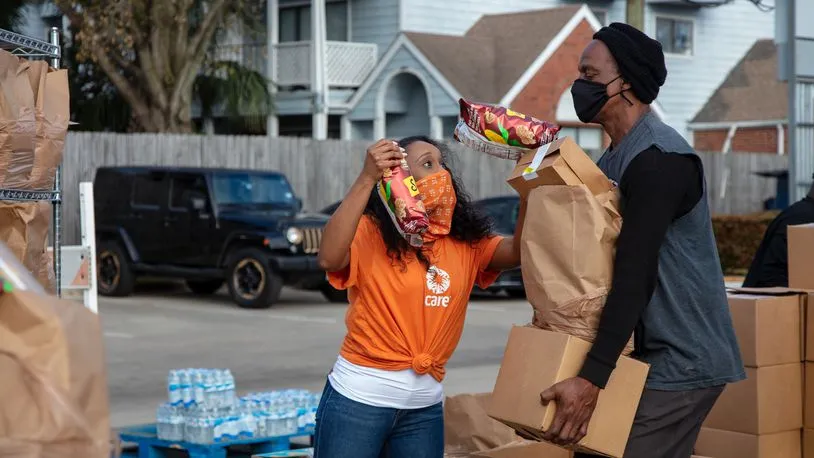On a recent episode of the popular cooking show “Top Chef,” the contestants were surprised with a challenge to make dishes using ingredients from care packages sent by their families. The chefs, homesick and tired, were so touched by the packages that it brought many of them to tears.
What viewers may not have realized, however, is that the history of the cherished care package goes back three-quarters of a century. The term, which refers to food or essential items being sent to someone who needs support, stems from an important event that took place 75 years ago.
In May 1946, a relief agency called Cooperative for American Remittances to Europe delivered its first CARE Package to Le Havre, France, to provide emergency food for Europeans struggling in the aftermath of World War II. The mission has broadened globally ever since, and today the CARE name stands on its own, no longer an acronym. The nonprofit aid agency revived its CARE Package program last year to help Americans across the country, including in metro Atlanta, impacted by COVID-19.
Peter Molt, a retired German historian, was a teenager in Stuttgart when his family received CARE Packages in 1946. The original packages contained surplus U.S. Army rations and could feed a small family for 30 days, with items such as instant coffee, black tea, canned meat, pitted prunes, raisins, apple baby food and chocolate.
“It was very helpful because we were very hungry at that time,” Molt said. “It was very difficult to find enough food, and so the CARE parcels, with all these beautiful things like chocolate and so on, for us young people, it was a really marvelous thing.”
Seeing a country that was Germany’s enemy in the war later aid in their survival was a decisive moment in his young life, said Molt, who spent time studying in California and later served on the board of CARE Germany. The formative experience has stayed with him, even through strained international relations.
“I have experienced American society in a way which was very helpful,” Molt said. “I think CARE is also an example of international understanding and solidarity.”

